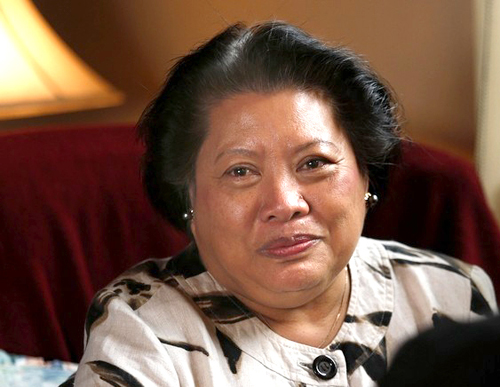By Elisabeth Sherman
Northwest Asian Weekly

Van Dinh-Kuno
A young Vietnamese girl fleeing her war torn homeland for a better life in America: the story might seem common enough—until you realize that girl grew up be one of Washington state’s most powerful advocates for immigrants.
Van Dinh-Kuno, who will be honored at this year’s Northwest Asian Weekly Top Contributors to the Asian Community dinner, came to Minnesota as a refugee escaping the fall of Saigon in 1975. Though she trained to be a scientist, she took every opportunity to aid immigrants as they transitioned to their new lives in the United States.
Forty years later, Kuno serves as the Executive Director of Refugee and Immigrant Services Northwest, which serves five counties in Washington.
She also serves on a variety of community boards and advocacy groups, including the Asian Pacific Islander Coalition, Tri-County Refugee Planning Committee, and the Multicultural Diversity and Equity Board at Everett Community College.
Kuno’s job is to ensure that immigrants arriving in Washington become successful citizens by helping them find steady work and a decent wage on which they can support themselves and their children.
“I advocate culturally for children, and for parents at community colleges,” Kuno said. “For example, we have a nursing program but there is a barrier because you have to be proficient in English to be admitted.”
That’s where Kuno steps in. Though the program is “mostly free,” through a Health Profession Opportunity Grant, but most immigrants won’t be able to attend because they don’t speak fluent English. Kuno and her team make an English teacher available in classrooms so they can learn the language during the job training.
“Hundreds of parents have gone through the program,” says Kuno, but that wouldn’t be possible without her intervention.
Kuno is a hands on activist: “We work with schools and parents, calling to remind them to show up to parent-teacher conferences, and translating transcripts.”
Kuno’s hard work produces plenty of success stories, but her proudest moment comes easily: She remembers working with one student, a young Bantu man from Somalia trying to graduate from high school, in particular.
“The counselor called me up on the phone and said, ‘Ali will never graduate from high school’,” recalls Kuno. “I helped him on his senior project, and we proved the school district wrong. The agency became a second home to him. We made sure he had enough food for him and his family. He is the first Somalian Bantu to graduate from high school in Seattle.”
But for all the good works that Kuno does, she still thinks there is room to improve upon and expand the services that Washington offers to its immigrant population. She believes that each high school needs two outreach workers on staff to assist the specialized needs of the children immigrants.
Their position is essential for the well-being and success of this vulnerable community because often workers from Kuno’s office are the only people advocating for these kids.
“If you don’t show up to school, an outreach worker will be there within 15 minutes. If you aren’t ready to go, we will wait for you, and get you in the car and take you to school. We have to do it, or else these kids don’t have a chance,” says Kuno.
Though Kuno admits that sometimes working with the immigrant community can be tough, Washington’s immigrant population is fundamental to the growth of the city, and their achievements can mean cultural and economic advancement for the whole state.
“They open small business, they upgrade the buildings. Their economic contribution is something like 100 million dollars. We keep the economy moving,” says Kuno. “If you said to me that immigrants don’t contribute to the community, I would need to x-ray your head.” (end)
Elisabeth Sherman can be reached at info@nwasianweekly.com.


